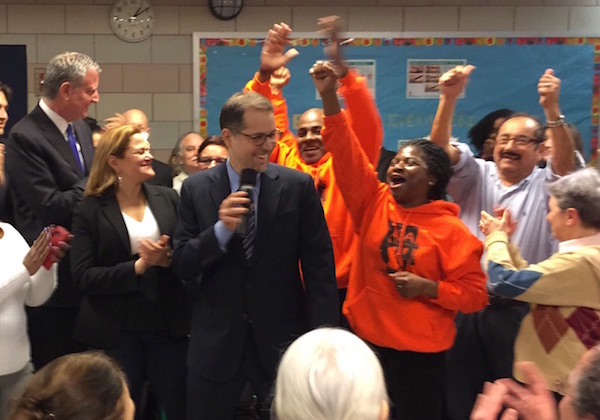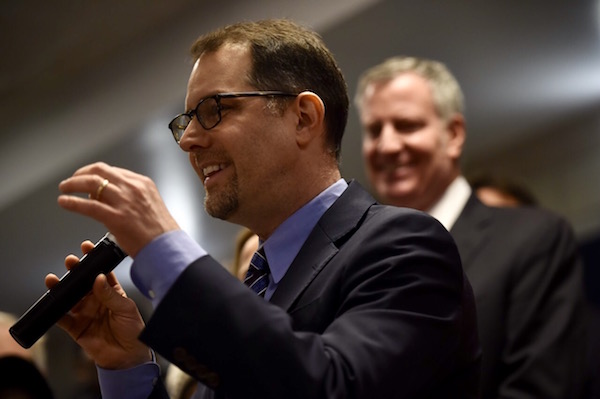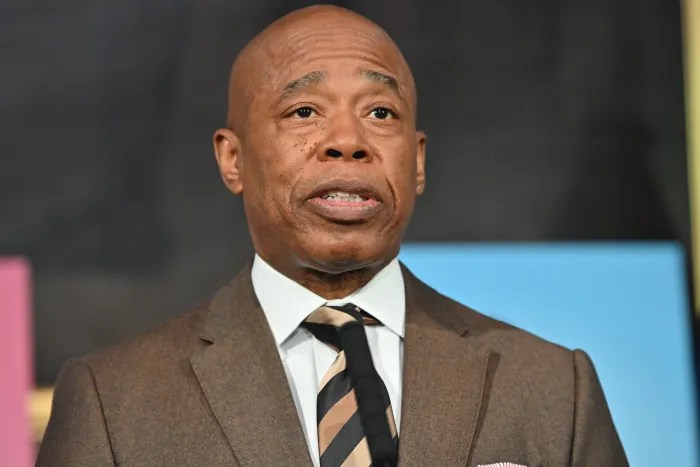
BY JACKSON CHEN | The city will pump millions of new dollars into tenant legal services that by the fifth year will represent an increase of $93 million over current levels, according to a February 12 announcement by Mayor Bill de Blasio and City Council Speaker Melissa Mark-Viverito.
The new funding will more than double the city’s commitment to providing free legal representation in Housing Court for low-income families that earn less than roughly $50,000 a year. The city calculated the threshold by doubling the federal poverty level for a family of four: $24,250. As many tenants have testified in the past, they are often subject to undeserved harassment or evictions from certain landlords. But soon, they will have greater opportunity to make their case in Housing Court with a city-provided attorney by their side.
“Bringing more justice to vulnerable New Yorkers is a hallmark of this City Council,” Mark-Viverito said in a press release. “The groundbreaking legislation outlined by the City Council and the mayor will ensure that no low-income New Yorker is forced from their home without legal representation.”
According to the announcement, the $93 million increase in funding would be phased in over five years, with incremental revenue of $15 million for the coming fiscal year. Currently, the fund for tenant legal services sits at $62 million and when fully implemented in 2022, the budget would reach $155 million and an estimated 400,000 residents would qualify, according to the city.
“We are the biggest city in the country to level the playing field between tenants and landlords in Housing Court,” de Blasio said in a release. “To anyone being forced out of their home or neighborhood, we are fighting for you. This is still your city.”
The announcement, made at West Side High School on the West 102nd Street, drew ecstatic cheers from a crowd that included Councilmember Mark Levine. The councilmember has been championing a bill that would codify the city’s funding pledge. Intro 214A was introduced by Levine and Bronx Councilmember Vanessa Gibson in 2014 and now has 42 co-sponsors on the Council. The momentum created by the mayor and Council speaker’s funding commitment should carry the bill through a successful vote, but Levine said they would do some slight revisions first.
The councilmember explained that the revisions include specifying the five-year phasing-in of the funding and language spelling out that some families above the federal poverty rate will be among those given access to free consultation with attorneys. Levine hopes the measure can make it out of the Housing Committee quickly and go to a full vote in the City Council within a matter of a few weeks.
“This has been my number one priority by far, even before I was on the Council,” Levine said. “From the moment I’ve gotten here, the last three years I worked very hard to push this forward. It is desperately needed in my district that’s overwhelmingly a rental district.”
Levine said that the extra $93 million the city will shell out to provide attorneys for low-income families would be greatly mitigated by a reduction in costs for families having to enter the homeless shelter system. The councilmember said the city spends up to $40,000 a year to house a family in the shelters, as opposed to the initial $2,500 cost for providing the same family legal services.
“Thousands of families all have been in Housing Court, sometimes on bogus grounds and the majority of them have not had an attorney,” Levine said. “This is a big deal in my district and a big deal citywide.”
All across the city, unscrupulous landlords have slapped unfair claims or evictions on their tenants, especially those in in rent-stabilized units. Many tenants have recounted the mismatch they face when they step into Housing Court alone, while an attorney typically represents the landlord in an arena they’re familiar with.

“I think it’s a new era for tenants in New York City where they now know they won’t be alone when they face the threat of eviction,” Levine said. “Landlords are going to quickly learn that there’s not a lot to be gained from frivolous lawsuits.”
Susanna Blankley, a member of the Right to Counsel NYC Coalition, said that on top of families benefitting, the legislation and funding would stem the displacement of residents that is usually followed by the area’s gentrification, which in turn puts pressure on other tenants.
“The Right to Counsel Coalition has fought long and hard for this measure that will give families a fighting chance to remain in their homes and communities,” Blankley said in a statement. “[This] landmark agreement sends a strong message to the city’s poorest residents that their lives, homes, and communities matter and that they will be protected.”






































